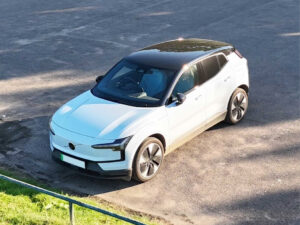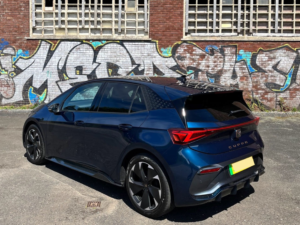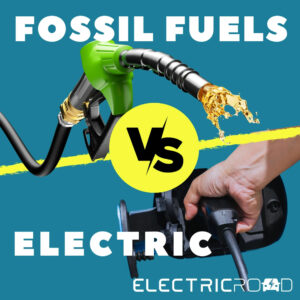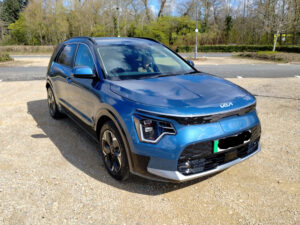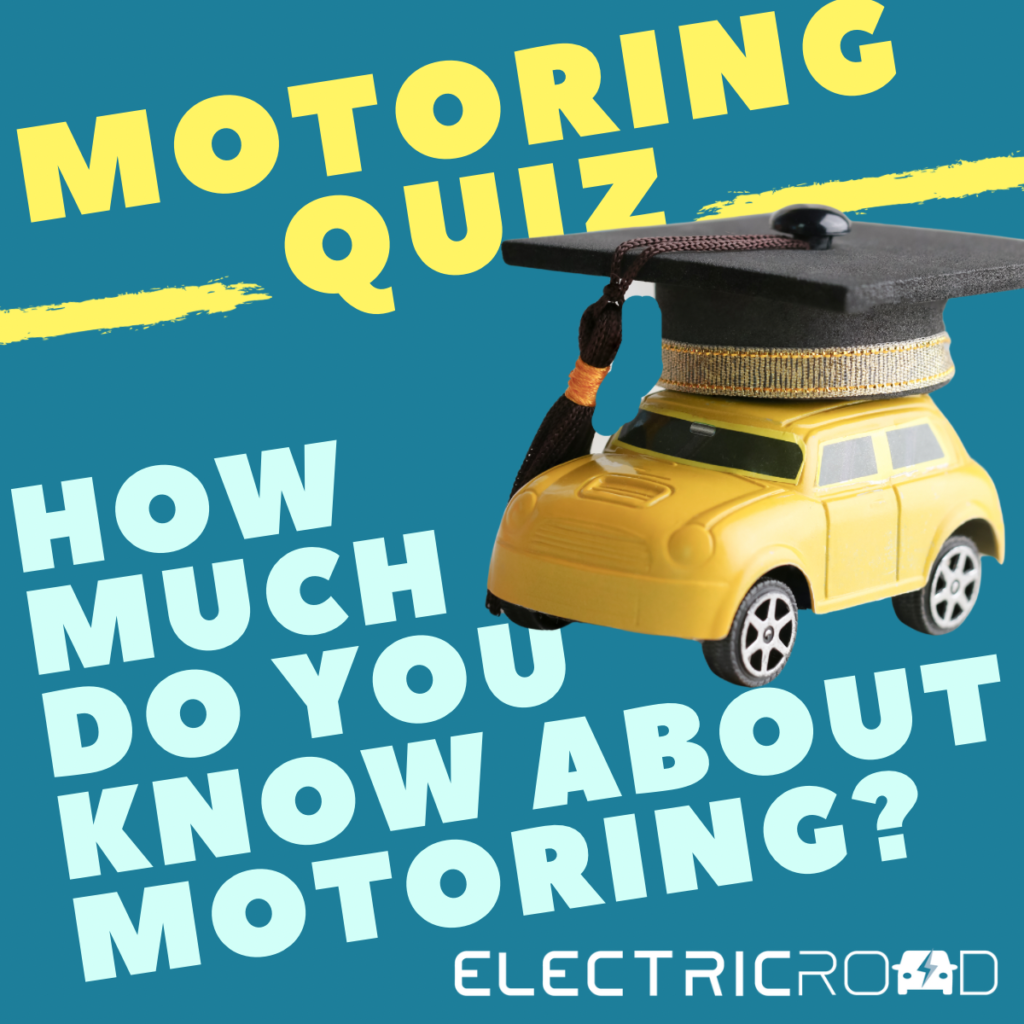Mark drives a Nissan LEAF 30kWh 2017.
This is Mark’s first electric car, he’s owned the Nissan LEAF from new and drives 10,000-15,000 miles annually. The current mileage of the car is between 50,000-60,000 miles and he achieves 95 miles from a full charge.
Why did you choose a Nissan LEAF?
It’s what was left after ruling out the other options. Tesla was too expensive. The BMW i3 wasn’t large enough. The Renault Zoe had a poor reliability reputation in the early days. The Hyundai IOINIQ was probably a better car than the Nissan LEAF but was too new to get decent discounts on.
The Nissan LEAF was heavily discounted in 2017, with a new version due out in 2018. The LEAF 24kWh had insufficient range for a 100 mile round trip journey which I was making twice per week at that time. I thought the 30kWh model would be capable of this journey. (It turned out to be marginal in the winter months.)
Are you seriously considering your first or next EV? Then visit Electric Road’s CAR FINDER to get the right car for you!
Positives – List 3 or more reasons why you love this electric car
- The constant acceleration from rest to cruising speed
- cheap to run
- smooth, quiet and effortless to drive
- better for the environment than an ICE car.
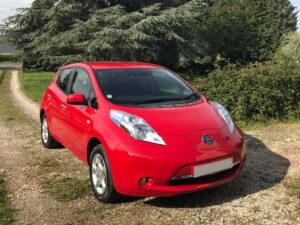
Negatives – List 3 or more things that you really don’t like about this electric car
It annoys me that I cannot turn the heating on within the car and then get out and lock it or turn on the heating with the car remote. The functionality is there within the car but I have to go via the internet to access it. This is just crazy.
On a related topic, I can set the timer for the heating to come on but this only works when the car is plugged in. Again, I can turn it on for 15 minutes via the computer or phone app, so why not from the pre-set in-car timer?
Range could be better. It would be adequate for my needs if the charging infrastructure away from home was not so patchy and unreliable, making longer journeys something of a challenge.
Have you experienced any faults with the car? If so, what have they been?
Creaky door mirrors – fixed with a little lubrication.
What are the standout technological features of the car?
It’s electric!
Surprise us! Tell us something people wouldn’t readily know about this electric car
I can’t think of anything positive which is special to the Nissan LEAF. Most of the surprises for people new to electric vehicles are common with other EVs too. I suppose the effortless acceleration is the biggest surprise to anybody coming from an ICE. The 0-60 time for the Nissan LEAF is not great on paper but in practice it’s all there when you need it. You can’t get caught out in the wrong gear. It only has one ratio.
What electric car(s) are you interested in next and why?
Sono Sion – it has the practicality of my previous ICE (Toyota Corolla Verso) combined with all the EV advantages of my Nissan LEAF. Reasonably priced and has a greater range than the LEAF. Not a bloated SUV with expensive large tyres, poor economy, not very ‘utility’ despite the ‘U’ in their category name.
Home charging unit – outline both positive & negative elements
Its a Pod Point, I think. I can’t be bothered to find out what model it is. It is a basic thing with no in-built timer. It does the job I need as I use the in-car timer to schedule my charging to take advantage of cheaper overnight electricity. There are cleverer units available which can be useful if you have solar panels on your house.
Electricity supplier & tariff – outline both positive & negative elements
Green Energy UK (GEUK) Tide tariff. I pay a higher rate (known as ‘high tide’) for electricity between 16:00 and 20:00 Mon – Fri. In return I get a cheaper rate (known as ‘low tide’) between midnight and 07:00. The rest of the time the price is similar to a fixed tariff. As I charge my car overnight I save far more on low tide than I spend on high tide.
What public charging networks would you recommend to others and why?
In my experience InstaVolt are the most reliable but not the cheapest. I’ll usually opt for one of these where there is a choice. I used Chargemaster (now bp pulse) a lot when I first had my Nissan LEAF as they provided cheap charging away from home in return for an £8 per month membership fee. I gave up my membership when they became too unreliable. I now avoid them. GeniePoint used to be OK, but they appear to be getting less reliable.
GRIDSERVE usually work but they are putting in more CCS only charge points. At motorway services I have had to queue for a CHAdeMO unit to become available. I avoid anything which is app only. I prefer the simplicity of contactless payment card, even if it is more expensive.
Insurer – outline both positive & negative elements
Can’t remember who I’m with. I ask Aleksander and Sergei for prices and choose the cheapest option from one of the known brands. I’ve not had to make a claim, so I’ve no idea how good any of them are.

Please itemise where you’re saving money owning & running your Nissan LEAF
- £80 per month in fuel costs
- £20 per month in road tax
- £15 per month in servicing
- insurance is now about the same as my previous 1.8 petrol ICE
- No monthly leasing cost as I own the car outright. Purchase price new after discounts was about £3,000 more than an equivalent size and spec ICE (e.g. Ford Focus or VW Golf)
- tyre wear and tyre costs are similar to my previous ICE car.
See other owner reviews here




